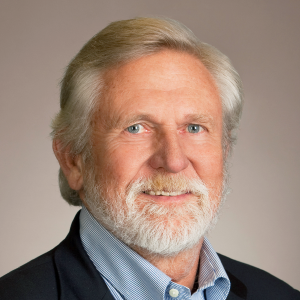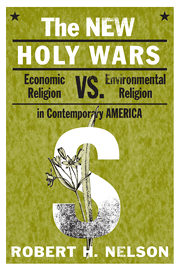The release of the Bush energy plan is generating an intense debate concerning the best ways of producing and conserving energy in the United States. Much of the discussion involves complex technical issues such as the ability to produce nuclear power from new engineering designs that would need to be foolproof against almost any form of human error.
In seeking to lay the groundwork for the release of the energy plan, though, Vice President Cheney suggested that there might be another important part of the discussion. “Conservation,” he declared, “may be a sign of personal virtue,” but the nation’s energy policy can not be based solely on such a moral sentiment. Many in the media and the environmental movement rushed to heap abuse on Cheney. And he has made little effort to defend the remark. Yet he was right to suggest that energy policy has become a sort of surrogate moral debate for the nation. Until there is wider recognition of this, key elements of the Bush energy plan are not likely to go anywhere.
Exhibit A is the Arctic National Wildlife Refuge (ANWR) in northeast Alaska. Bush wants to open it for oil and gas drilling but so far lacks the political support in Congress. ANWR is widely treated as though it were an issue of trading off the benefits of oil development against adverse impacts on the environment. But it is really a debate about one way of expressing—or not expressing—the kind of “virtue” that Cheney was speaking about.
It is remarkable but true that 400 years after the Puritans settled the Massachusetts wilderness, and following waves of immigration from all over the world, America is still in important ways a Puritan country. To simplify, the Puritan branch of Calvinism preached that an excess of consumption is a temptation to sin and a threat to one’s immortal soul. Echoes of that conviction are still powerful in our discussions of the role of conservation in a national energy strategy.
Environmentalists like to say that oil development should not occur in the Arctic National Wildlife Refuge because it is one of the few remaining “untouched places” on earth. However, ANWR is not significantly different in its degree of isolation and remoteness from tens of millions of acres of other lands in northern Alaska (and Canada and Russia) that border on the Arctic.
True, the Porcupine caribou herd has calving grounds there. However, there is little evidence that caribou—which number around 1 million in Alaska and have thrived around the Prudhoe Bay oil field—would be harmed by oil development. Moreover, every place on the planet to some extent has unique biodiversity features. Indeed, there is only one attribute of ANWR that makes it truly special—the enormous amount of oil that lies beneath it.
Why, then, has the environmental movement focused on ANWR as a special object of its attentions? Paradoxically, it is the very presence of so much oil. A deliberate decision to leave the enormous oil wealth of ANWR in the ground makes a powerful symbolic statement—that consumption is not everything in life, that there are more important things than producing energy, that economic growth will not yield the utopia once widely expected. In other words, in environmental eyes, closing ANWR off to oil development is a particularly effective way of affirming the “virtue” of the nation—a renunciation of material goods and acquisitiveness that Cotton Mather would have applauded.
Environmentalism, it has been often remarked, is in part a religion—and acts of deep symbolic significance have always been central to religion. Making a large sacrifice is one of the traditional ways in which a community makes a strong religious statement—from a primitive tribe offering up one of its valuable animals to God, to the gathering of contributions to build a Gothic cathedral in medieval Europe. In fact, environmentalists themselves sometimes refer to ANWR as a kind of “cathedral” for our time. To “save” ANWR would be to dedicate perhaps the most expensive church in the history of the world.
Many members of the environmental movement, to be sure, are secularists who are uncomfortable staking out explicitly moral positions. They resolve this dilemma by making a series of “practical” arguments against ANWR oil development. They really are new preachers in the land who want to teach us how to live righteous lives, but they couch their sermons in technical and economic language.
The problem here is that the pragmatic arguments fall apart under close scrutiny. It is often said by opponents of ANWR oil development, for example, that it would further enrich oil “giants” like Exxon-Mobil. Actually, the oil reserves in ANWR are owned by the federal government. The Interior Department leases oil and gas reserves through competitive bidding and then collects royalties (which are currently bringing in about $5 billion per year from previous federal leases). In ANWR, the federal government would divide the revenues with the state of Alaska.
Most of the economic “surplus”—the revenues minus the costs—in ANWR would go to governments. The federal government and the state of Alaska might receive from $20 billion to $40 billion each over the long run. Assuming the Interior Department does a good job in running the leasing program, the oil companies will end up with little or nothing more than their normal rate of return.
The opponents of ANWR development also argue that the expected oil can provide only six months of U.S. oil consumption (actually, the figure is more like two years). However, if you divide any large project into enough parts, no one part will be essential. This argument recalls the dieter who says: “It is okay to eat this piece of cake now because any one piece will have no effect on my weight six months from now.” People who think that way do not get very far in their diets.
Opponents further contend that ANWR oil development is not necessary because there are many opportunities for energy conservation in the United States that could save just as much or more oil. This form of reasoning is analogous to saying a person should avoid one stock market investment because another good investment is also available. Obviously, any good investor will compare the relevant returns. But he is also likely to want a diversified portfolio.
Even the bedrock argument that ANWR has been little touched by human hand is flawed. A military facility was built there in the 1940s. And the Inupiat people have occupied the area for centuries. This argument thus carries the unfortunate implication that the Alaska Natives are something other than human.
If most of the “practical” arguments against ANWR oil development are weak, truth in advertising requires a recognition that many of the arguments in favor of ANWR development are also weak. Indeed, rebutting these flawed arguments has been the best thing the environmental movement has had going for it.
Some of the advocates of developing ANWR oil seem to suggest it will solve the energy problems of California or of the nation over the next few years. But the earliest that oil could be produced from ANWR is six or seven years from now.
The most recent 1998 estimates of the U.S. Geological Survey put expected oil production from ANWR at 7.8 billion barrels. In itself, however, the physical availability of this huge amount of oil means little. If the price of oil falls below $18 per barrel, 40 percent of the ANWR oil would not be economical to pump. Though higher now, world oil prices were frequently below $18 during the 1990s, and reached $10 as recently as 1999.
It is said that ANWR will reduce the dependence of the United States on foreign oil supplies. The reality is that there is a global oil market in which national boundaries are largely irrelevant. The logical place to sell most ANWR oil is probably Japan. The amounts of oil that might be produced in ANWR could never have more than a very small effect, if any, on the international price of oil. There is a genuine problem with overdependence on the Persian Gulf for world supplies of oil. But it is a problem for every nation, perhaps even greater for Europe and Japan. For the United States to seek to resolve this problem by itself makes as much sense as acting alone on matters of climate change.
So what is the real case for developing ANWR? It is simply that its expected oil reserves are a huge economic asset. By themselves they would add perhaps $40 billion to $80 billion to net national income over the next few decades (the exact amount depends on the future price of oil). This income would largely come in the form of additional revenues divided between the federal government and the state government of Alaska.
On the other side, the real case for keeping ANWR oil in the ground is that it offers the chance to make a religious statement—a sacrifice that would affirm American “virtue,” the very thing that Cheney was correct to perceive as the underlying element in the national energy debate.
If Americans should come to recognize this as the actual choice, it seems likely that a majority will believe the oil should be developed and that environmentalists perhaps should spend more time in real churches. It is, to say the least, hypocritical to drive a Volvo and jet-set across the world, and then turn around and lament the evils of modern consumption.
Getting into moral domains like this will, however, involve political risk—as Vice President Cheney has learned. There is nothing like the fury of the hypocrite exposed. For the Bush administration, the political risk may not in the end be worth the $20 billion to $40 billion in revenue that would come to the federal government. Americans also have a longstanding aversion to debating religion in public. That is why the true ANWR debate has been disguised.
Yet, the stakes go well beyond ANWR. The fate of nuclear power in the 21st century will also have as much to do with issues of national “virtue” as with any technical considerations. Whatever its practical advantages, nuclear power for many opponents has become a symbol of what they see as the tendency of human beings in the modern era to “play God.”
Ultimately, the fate of both nuclear power and the oil in ANWR will be resolved as much by the ethics of national “virtue” as by economics. Following the release of the Bush plan, an honest debate on the future shape of national energy policy may require the services of theologians as much as those of engineers and economists.












